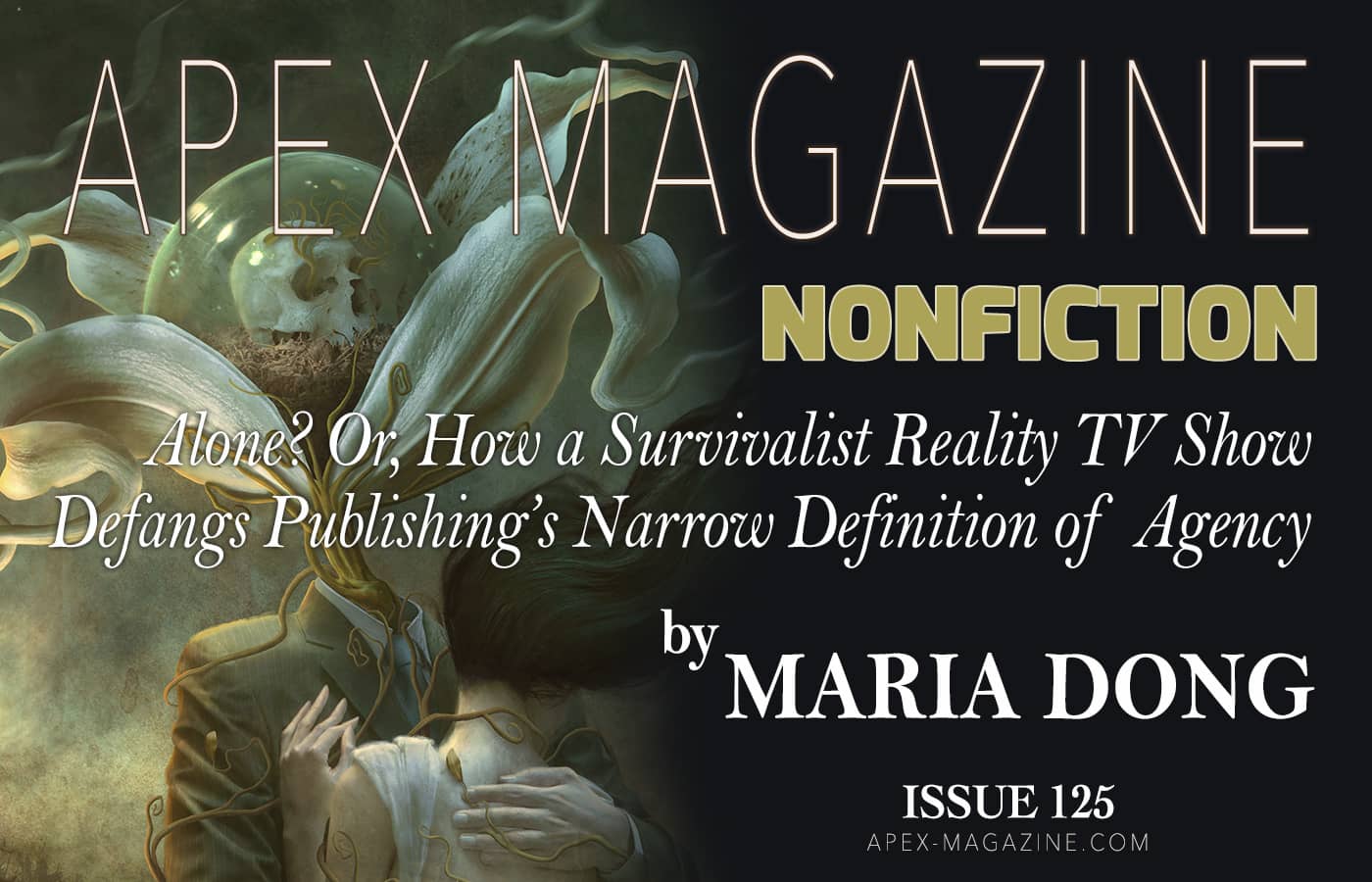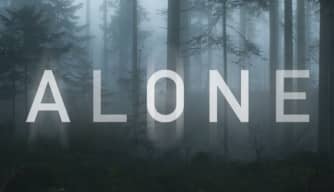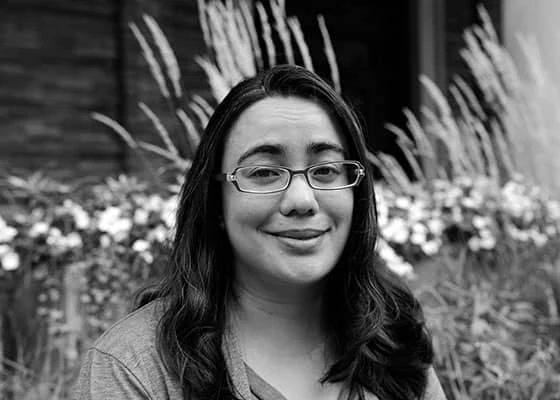
I am neither an intrepid hero nor a good naturalist. I once passed out during an easy hike up Seoraksan, a Korean mountain renowned for the beauty of its hiking trails. It was a lovely summer day, and I was bumming around the country with four guys that I met on the Korean version of Reddit, who were then forced to call emergency services so that someone could carry me back down the mountain.
It’s strange, then, that my current fixation is Alone, a reality show on the History Channel in which ten minimally-supplied, self-proclaimed survival experts are individually dropped into the wilderness with the goal of being the last to give up. Over the course of several seasons, though, I’ve pieced together why I find Alone so fascinating: by showcasing compelling narratives in which quiet, creative, and collaboratively-minded individuals often carry the day, Alone casts doubt on publishing’s hyper-narrow definition of a “protagonist with agency”—a definition often used to unfairly critique marginalized authors, whose writing showcases more nuanced and varied interpretations of how real-life individuals respond to challenging systems.

As an SFFH writer, I would also speculate (get it!?) that this problem is particularly pronounced in our genres, specifically because the conflict, stakes, and criteria for success are often underpinned by (1) sexism, (2) manifest-destiny colonialism, and (3) capitalist-palatable depictions of revolution. As such, it’s a genre already steeped in tone-policing, model-minority-ism, and neoliberal-protestant morality; narratives tend to reward traits that can only be seen as positive qualities if the protagonist lives in a (again, 1) non-hostile environment, is somehow immune (see, 2) from the effects of sustained systemic trauma, or (3) doesn’t care about how their actions affect others—traits like hyper-aggressiveness and know-it-all-ism.
Alone has its problems: the representation isn’t the greatest, it’s at times appropriative, particularly of Native American practices, and the heavy editing of the footage to create specific danger plot points strays into downright misrepresentation (people go home out of order, sound effects are added and removed to editorial preference). But it’s also a show in which contestants and their choices don’t match mainstream publishing’s tunnel-vision ideal of a compelling protagonist—and yet, the first season had over 2.5 million viewers, and the show is in its eighth season; audiences are open to seeing a greater range of personalities and approaches, an openness that ought to translate to the printed page.
I’ve summarized four Bad Publishing Rules below, encapsulating some of the feedback I’ve received during my personal long writing journey, specifically from agents and editors on the subject of what makes a good protagonist. It’s my hope that by deconstructing them via the lens of Alone, and specifically with an eye toward the experiences of systemically marginalized individuals, we can start better conversations between writers, readers, and editors that include questioning the accepted singular definition of agency.
Bad Publishing Rule #1: Successful Protagonists Are Always Strongly Independent
On its surface, you’d think a show called Alone would uphold the idea that strong people do shit by themselves—but even when people are airlifted into an isolated wilderness, no individual is an island (even if they’re literally on one). Survival is dependent on understanding the fundamental importance of community and collaborative values, even if that community isn’t currently present. For example, it’s fairly rare that a contestant takes “full credit” for an invention: when people are hunting grouse, raising a shelter, or constructing a trap, they’re constantly referencing the people that taught them what they know: I learned this in a workshop; this dead-fall was originally designed by the Paiute; I got this hunting technique from my dad—and this tracks closely with human experience. Every artistic movement, new fighting technique, or scientific invention, is ultimately a collaboration in which progress comes from many individuals and over a sequence of degrees. (An illustration of this principle is how rapidly new contestants start bootstrapping from earlier ones—as the seasons go on, the amount of time it takes people to win necessarily gets longer because contestants incorporate techniques from previous seasons.)
This is an important concept to think about as we circle back to SFFH, and particularly the concept of stakes. Publishers are forever looking for so-called louder stories that take place across huge scopes, like trilogies in which one precocious, powerful individual single-handedly brings about revolution. Not only is this improbable, it’s also dangerous—it speaks to the kind of thought pattern where the community itself is thrown aside in a paternalistic way; surely this hero knows what’s best for, well, everybody. It’s to the point where if a novel even “whiffs” of revolution, I’m tempted to throw it away unless presented with strong evidence it won’t fall into this paradigm.
There’s also the fact that publishing equivocates “independent” with “solitary”. Being alone is seen as a source of strength—which is ludicrous. Human beings are communal animals. Being alone—physically, psychologically, ideologically—is difficult and traumatizing. It’s why the UN recommends the banning of solitary confinement as a punishment technique, noting that lasting mental damage occurs after just a few days of isolation, with a recommended absolute ban on solitary confinement greater than 15 days. (According to Reddit lore, the title of the show wasn’t even supposed to be Alone in the first place. It was only during filming when people started giving up for psychological reasons that producers realized not being able to depend on others was the hardest aspect of the show.)
A realistic assessment of the effects of social or physical isolation would necessarily result in more value placed on SFFH protagonists who are either strongly collaborative, or, at the very least, wish they could be more collaborative, and fewer narratives about independent heroes seizing power at the expense of, uh, pretty much everybody else—as well as some real psychological blowback for those narrators who are alone, because the fundamental experience of being psychologically isolated is suffering.
Bad Publishing Rule #2: Heroes Are Smart, Clever Experts
Years ago, I was on submission with a fantasy novel about two marginalized teenage girls. One of them existed outside society in an isolated house in the woods, and one was a member of a major city’s lowest caste. In keeping with Rule #1, these girls were having a bad time.
I’ll never forget the complaint I received from the editor of a major house, who said it was unrealistic my protagonists kept discovering things as they went, versus acting according to a strong, rational plan they’d worked out ahead of time. It didn’t make sense to this editor that these girls didn’t know about distant places they’d never seen or the inner political workings of the royal court. I find this amazing because the truth is that even in our hyper-educated, hyper-connected society, most people don’t know a lot of things. I have no idea which of the plants in the garden are edible, despite my husband’s coaching. A significant percentage of Americans don’t understand how marginal tax rates work or who their mayor is. And despite spending my early twenties hunched over an engine bay, when I pop the hood of any vehicle built after 2015, I feel like I’m looking at the guts of a spaceship. Even experts don’t know lots of things about their own field. If you don’t believe me, you would be uncomfortable with the extent to which your doctor uses Google.
That’s not to say the assumption that you know things isn’t normal and human—but privilege also makes you think you’re smarter than you really are, which is one reason we see droves of men with half a bachelor’s degree confidently trying to school female NASA scientists about space. Conversely, marginalized people are constantly confronted with situations in which their own expertise is questioned, the effects of which are measurably psychologically damaging over time.
I’d also like to push back on the idea that readers find stereotypically intelligent or competent protagonists more interesting, likable, or relatable. After seasons of watching what does and doesn’t work for various contestants on Alone, there are some “tried and true” survival rules I’ve come to internalize.When a contestant decides they’re going to go it without a gill net to catch fish in tidal changes or a ferro rod for efficient fire-starting, I find myself screaming at the television—and while I can’t say I “like” that person, I’m certainly paying attention and committed to watching more.
Finally, there’s also the incontrovertible fact that stress makes you do dumb things. That includes physical stress, like hunger and sleeplessness, but also emotional stress, like not knowing how you’ll make rent. (At one point, one of my protagonists had gone three days without sleep, a situation that science tells us makes her the functional equivalent of a drunk person. How “smart” is she really going to be?) Many marginalized people often understand this fundamentally, because we’ve been subjected to constant stress and seen ourselves and our peers make “irrational” life choices as a result. (Fuck that job!)
So I love that overand over, Alone showcases stressed-out people making desperate, gutsy, ridiculous moves to escape from under the thumb of whatever circumstance they’re in—like the particularly memorable contestant who was airlifted to the hospital for near-starvation, despite the week’s worth of food stored in his tent. Hunger itself destroys rational decision-making.
I’m done with fantasy novels where the main character is pressed up to the wall—starving, running on a week of no sleep, perpetually hunted, diseased, cursed, whatever—and manages a sound, rational choice. Please, SFFH, I want to see people fall off their horse, lock themselves out of their house in a blizzard, or put the calculations in for jump wrong because they stayed up all night worrying about their shitty relationship—and not just in the exposition. Give me dumbass climaxes!
Bad Publishing Rule #3: Protagonists Are Strong, In A Conquer-y Sort of Way
Whether it’s riding into battle against a rival army or scientists on a spaceship spreading knowledge to ”backward” planets, good protagonists are supposed to wrestle the outside world to their image. When they succeed, it’s usually due to stereotypically masculine toughness or cold, hard rationality—never intuition, vulnerability, privilege, luck, or wooo. One of fantasy publishing’s favorite tropes is that of “reverse privilege”—the weight of being a king, of being too famous, too beautiful, too smart—God, it’s so hard being amazing!
I take a particular glee in the fact that so often on Alone, it’s when people most epitomize the paragon of a traditional hero that they’re forced to tap out. Lots of people arrive monologuing about how their previous careers as police officers or soldiers have “toughened” them to the point where they will “conquer the wild” and “won’t back down,” but don’t even make it through the first few days. The second a mountain lion circles into their orbit and they realize for the first time that I’m not the best killer out here, it so rattles their worldview that they’re forced to press the escape button. In other words, they’ve never been confronted with their own lack of agency.

Traditional publishing often sees agentic heroes as people of vision. But having an unwavering vision for how things are going to play out—and being able to stick to it—often speaks to privilege, because it requires the support of your social, physical, and financial environment. If you live in a hostile environment (and what is marginalization, if not continued exposure to hostile environments), vision can be dangerous—like the season where a master boat-maker becomes fixated on building a vessel to get to better fishing, only to miss the salmon run completely. Survival often means giving up and just rolling with the punches.
Bad Publishing Rule #4: Heroes are “Doers”
Here’s something I think most marginalized people understand deeply: every moment of participation in a hostile system has a cost. Even something as simple as scrolling down a Twitter feed can be a constant reminder that people hate you for reasons beyond your control, that every single day is full of people you care about being forced to suffer (or be killed)—and if you forget for even a second your place in this system, you open yourself up to retaliation, and often from those that purport to be your allies.
When every single action is taxing, including doing nothing—every action a person takes or doesn’t is inherently agentic. On Alone, people weigh that carefully—fishing or foraging without result is a substantial energy cost that can knock you out of the running. Sometimes agency means just staying in the game on yet another rainy day when you’re depressed and hungry and tired and the exit button is right there. (Several winners explain how the greatest skill you can bring into the experience is just … being able to suffer, a truism that cuts deep for many marginalized individuals.)
SFFH’s constant obsession with doing, versus feeling or thinking, is exhausting. It leads to a flattening of narrative structures and characterizations, and it often serves as a de facto rejection of the experience of marginalization. People aren’t only interesting when they’re taking up weapons against the system; they’re also interesting when they’re making the choice to not fight the system because they have kids to feed or they’re just really fucking tired that day.
And thinking is interesting: some of my favorite moments of Alone are contestants just sitting in their tents in the rain, talking about the self-discoveries they’ve made, the things they’ve come to regret as a byproduct of having the time to sit quietly, between a rock and a hard place, with nowhere to go.
Fiction by marginalized authors often showcases this—and not just in the dark night of the soul, right before the protagonist rallies for their seminal fight to the climax (or, to a lesser extent, before the Act Two ChoiceTM). SFFH would find itself richer if editors were devoted to recognizing and honoring quieter, more introspective narratives of the human experience.
Publishing Rule #5: My (Only) Writing Rule
Although I’ve done a lot of complaining here, I have a long-running love affair with SFFH. Like many other queer, disabled, and multi-ethnic people, I was instantly and profoundly attracted to a genre that forever reinterprets reality’s past and future. But I often find myself wondering if there is room in the genre for people with narratives like mine. In low moments, when my inbox fills with rejections hostile to the realistic depiction of the struggles of marginalized people, it’s a herculean effort to just keep going.
It was in such a moment that I found Alone—and perhaps I’m too boring to be a good protagonist, but I can say this show helped me retreat quietly into my metaphorical tent in the rain and ponder the direction of my life—calibrating, reassessing, re-envisioning, and collaborating with my fellow artists—and make up my own agentic writing rule: to not tap out. I can’t quit, even if it means penning stories in a leaky shelter while the wolves howl outside or scratching poems in pictograph form on a walking stick I hacked out of a piece of pine. Never thought I’d say this, but thank you, Reality TV. You’ve proved that I’m not alone.









